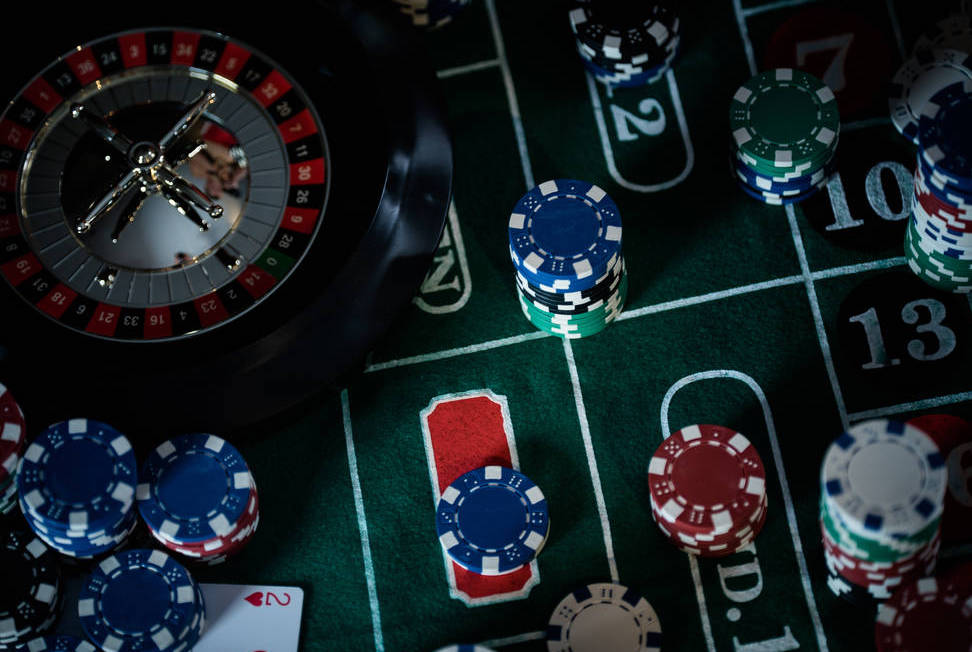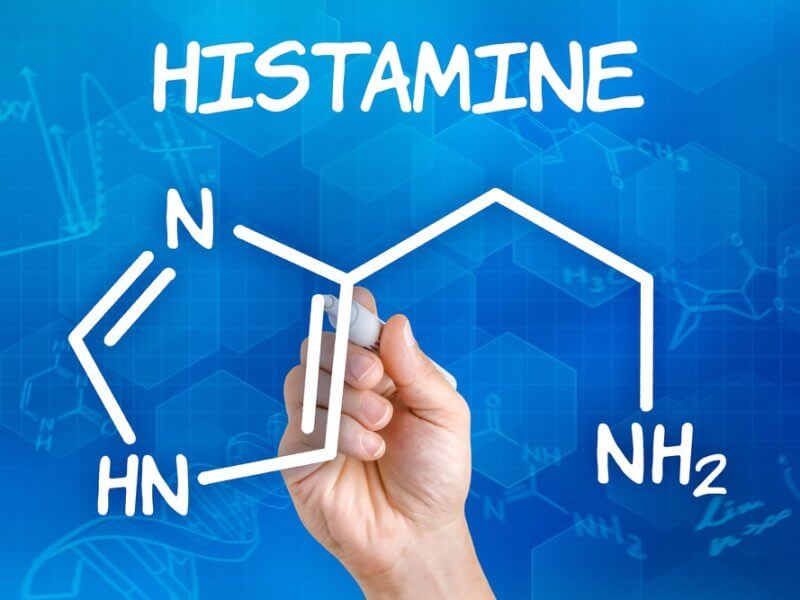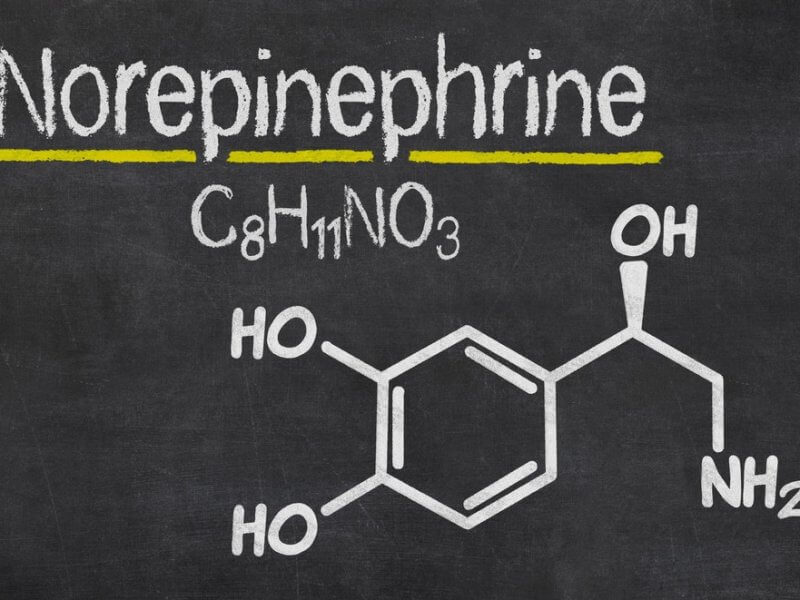Last Updated on 13/02/2026 by James Anderson
Separating Signal from Noise
Modafinil occupies a unique position in psychopharmacology. It is a drug that enhances cognition without euphoria, promotes wakefulness without addiction, and modulates dopamine without the explosive reward signals of classic stimulants. This profile has earned it a reputation for safety and specificity.
However, a recurring question often amplified in online forums and, more recently, in clinical discussions demands rigorous examination: Does Modafinil cause or contribute to compulsive gambling?
This question is not frivolous. It is grounded in a legitimate neuropharmacological hypothesis. Dopamine is the final common pathway of virtually all drugs of abuse and is intimately involved in the reward prediction errors that drive pathological gambling. A drug that elevates dopamine, even modestly, warrants scrutiny for its potential to dysregulate reward processing in vulnerable individuals.
Analysis of the relationship between Modafinil and gambling disorder. We will dissect the proposed mechanism, critically evaluate the existing clinical and preclinical evidence, differentiate between established fact and theoretical speculation, and provide actionable clinical recommendations for risk stratification and patient counseling.
Neuropharmacological Plausibility: The Dopamine Hypothesis
1. Dopamine and Pathological Gambling: The Established Link
Gambling disorder, reclassified in DSM-5 as a substance-related and addictive disorder, is characterized by persistent, recurrent maladaptive gambling behavior. Its neurobiological underpinnings are now well-characterized:
- Reward Prediction Error: Dopamine neurons in the ventral tegmental area (VTA) encode the difference between expected and received rewards. In pathological gambling, this system is dysregulated, producing an exaggerated dopaminergic response to near-misses and monetary wins.
- Ventral Striatal Hyperactivity: fMRI studies demonstrate heightened ventral striatal activation in response to gambling cues in individuals with gambling disorder.
- Reduced D₂/D₃ Receptor Availability: PET studies have demonstrated lower dopamine D₂/D₃ receptor availability in the striatum of pathological gamblers, analogous to findings in substance use disorders.
Conclusion: Any drug that reliably and significantly elevates synaptic dopamine in the mesolimbic pathway has, in principle, the potential to modulate gambling behavior.
2. Modafinil’s Dopaminergic Fingerprint: A Different Signature
This is where the argument becomes nuanced. Not all dopamine elevation is equal.
| Agent | Dopamine Mechanism | DAT Occupancy (Therapeutic) | VMAT2 Interaction | Euphoria | Addiction Liability |
|---|---|---|---|---|---|
| Modafinil | DAT inhibition (competitive, reversible). | ~50% | None | Absent | Low (Schedule IV) |
| Amphetamine | DAT reversal; VMAT2 release. | >80% | Yes | Moderate-High | High (Schedule II) |
| Cocaine | DAT inhibition (rapid, high-affinity). | >80% | None | High | High (Schedule II) |
| Methylphenidate | DAT inhibition (potent). | >60% | None | Low-Moderate | Moderate-High (Schedule II) |
| Bupropion | Weak DAT/NET inhibition. | <25% | None | None | Low |
Key Clinical Distinction:
- Amphetamine and cocaine produce a supraphysiological, rapid-onset dopamine surge that directly and powerfully activates reward circuits. This is the neurochemical signature of euphoria and high addiction potential.
- Modafinil produces a slow, modest, and sustained elevation of extracellular dopamine, reaching only ~50% DAT occupancy. This is sufficient for pro-cognitive effects but does not produce the reward prediction error signal required for classical reinforcement.
Implication: The dopamine hypothesis linking Modafinil to gambling is theoretically plausible but mechanistically distinct from the dopamine surges that drive compulsive reward-seeking in addiction. It is not a simple “dopamine = risk” equation.
Clinical Evidence: What Do We Actually Know?
1. The Absence of Controlled Trials
There are no published, peer-reviewed, controlled clinical trials specifically investigating Modafinil as a cause of gambling disorder. This is the single most important fact. Any assertion that “Modafinil causes gambling” is currently speculative and not evidence-based.
2. Post-Marketing Surveillance and Case Reports
The FDA Adverse Event Reporting System (FAERS) and other pharmacovigilance databases contain rare, isolated reports of “pathological gambling” associated with Modafinil. These reports must be interpreted with extreme caution:
- Confounding: Patients taking Modafinil often have comorbid conditions (ADHD, bipolar disorder, depression) that are themselves independent risk factors for impulse control disorders.
- Causality: A temporal association (gambling began after starting Modafinil) does not establish causation.
- Denominator: Given the tens of millions of Modafinil prescriptions and off-label courses, the number of reports is vanishingly small. This argues against a strong, common effect.
3. Studies on Modafinil and Impulsivity/Risk-Taking
A small number of controlled studies have examined Modafinil’s effects on laboratory measures of impulsivity and risk-taking. The results are mixed and context-dependent:
| Study | Population | Task | Effect of Modafinil |
|---|---|---|---|
| Turner et al. (2003) | Healthy adults. | Cambridge Gambling Task. | Reduced risk-taking; improved quality of decision-making. |
| Killgore et al. (2009) | Sleep-deprived adults. | Iowa Gambling Task. | Improved advantageous decision-making; reduced risky choices. |
| Randall et al. (2005) | Healthy adults. | Stop-signal task. | Improved response inhibition (reduced impulsivity). |
| Zack & Poulos (2009) | High-impulsivity adults. | Cued go/no-go. | Increased behavioral disinhibition in this specific subgroup. |
Synthesis:
- In most healthy, non-sleep-deprived individuals, Modafinil either improves decision-making or has no effect on risk-taking.
- In sleep-deprived individuals, it restores rational decision-making to baseline levels.
- One study suggested potential for increased impulsivity in individuals already characterized as highly impulsive.
Critical Interpretation: These are laboratory tasks measuring abstract risk-taking, not real-world compulsive gambling. The finding that Modafinil may affect highly impulsive individuals differently is hypothesis-generating, not conclusive.
Differential Diagnosis: The Confounding Variables
A patient who reports new-onset or worsened gambling after starting Modafinil requires a thorough differential diagnosis. The drug may not be the cause.
1. The “Activation” Confound
Modafinil increases energy, motivation, and goal-directed behavior. A patient who was previously too fatigued, anergic, or apathetic to engage in gambling may, after starting Modafinil, simply have more capacity to act on a pre-existing tendency. The drug has not created the impulse; it has removed the barrier to acting on it.
2. The Underlying Condition Confound
- ADHD is associated with higher rates of impulsivity and comorbid addictive disorders, including gambling.
- Bipolar disorder, particularly in subthreshold manic/hypomanic states, is strongly associated with impulse control disorders.
- Depression may involve anhedonia; relief of anhedonia by Modafinil (or the antidepressant it augments) may unmask latent reward-seeking behaviors.
Clinical Pearl: Always assess whether the gambling behavior is temporally linked to improvement in the underlying condition (reduced depression fatigue) rather than a direct pharmacological effect.
Risk Stratification: Who, If Anyone, Is Vulnerable?
Given the absence of definitive evidence, a rational clinical approach is to identify populations with theoretical or documented elevated risk and exercise heightened caution.
| Risk Level | Patient Profile | Clinical Recommendation |
|---|---|---|
| Low | No personal or family history of impulse control disorders or substance use disorders. Prescribed for FDA-approved sleep disorder. No concurrent psychiatric diagnosis. | Standard monitoring. Educate patient on the theoretical risk; no special precautions. |
| Moderate | Personal history of impulsive traits (borderline personality features, intermittent explosive disorder). Off-label use for cognitive enhancement. | Explicit pre-treatment counseling on impulse control risks. Monitor for behavioral changes at follow-up. |
| High | Established gambling disorder (current or past). Active substance use disorder. Bipolar I disorder (especially with history of manic/hypomanic episodes). | Avoid Modafinil if possible. If essential for severe narcolepsy/OSA, use only under close psychiatric supervision with clear behavioral monitoring plan. |
Clinical Recommendations and Safeguards
1. Pre-Prescribing Screening
For any patient, but especially those in moderate/high-risk categories:
- Ask directly: “Have you ever had problems controlling your gambling, spending, sexual behavior, or other impulsive activities?”
- Differentiate: “Were you too tired to gamble before, and now you have more energy?” vs. “Do you feel a new, uncontrollable urge to gamble?”
- Document: Clearly record the assessment and the patient’s baseline status.
2. Active Monitoring
For patients on Modafinil:
- Schedule follow-up within 4-8 weeks of initiation.
- Re-assess impulse control: “Since starting this medication, have you noticed any new or worsening urges to gamble, spend money impulsively, or engage in risky activities?”
- Do not dismiss patient concerns: If a patient reports a new, compelling urge to gamble, take it seriously. Even if it is a rare event, the drug may be the trigger.
3. Intervention Protocol
If new-onset or worsened gambling behavior is identified:
- Do not ignore. Acknowledge the patient’s report.
- Consider discontinuation. A trial off Modafinil will clarify causality within 1-2 weeks. If gambling urges resolve, the association is confirmed.
- Refer. Patients with confirmed impulse control disorders should be referred for specialized treatment (CBT, support groups, financial counseling).
- Alternative medications. For sleep disorders, consider pitolisant (Wakix) or solriamfetol (Sunosi), which have different dopaminergic profiles and no documented signal for impulse control disorders.
Conclusion: Plausible but Unproven
The hypothesis linking Modafinil to compulsive gambling is neurobiologically plausible but clinically unproven. There is no robust evidence that Modafinil causes gambling disorder in the general population. Its dopaminergic mechanism is fundamentally different from the high-magnitude, rapid-onset dopamine surges that drive addiction and compulsive reward-seeking.
However, absence of evidence is not evidence of absence. Rare, idiosyncratic reactions are possible. The most defensible clinical position is one of informed caution:
- For most patients, Modafinil does not increase gambling risk.
- For patients with established impulse control disorders, especially gambling disorder, Modafinil should be avoided unless absolutely necessary and then used only with explicit monitoring and specialist supervision.
The narrative that “Modafinil causes gambling” is an oversimplification. A more accurate statement is: “In a very small, vulnerable subset of individuals, Modafinil may unmask or exacerbate underlying impulsive tendencies, including gambling. This effect is neither universal nor predictable, but it warrants clinical attention.”
Responsible prescribing requires acknowledging the hypothesis, screening for vulnerability, and monitoring for change. That is not alarmism. It is standard of care.
FAQ
Should I stop taking Modafinil if I am a recovering gambling addict?
Yes, you should have a direct conversation with your prescribing physician. Given your history, the theoretical risk outweighs the potential benefits unless you have a severe, refractory sleep disorder with no alternative treatments. Do not stop abruptly without medical guidance, but do not restart without explicit discussion.
Does Modafinil cause other impulse control problems, like compulsive shopping or hypersexuality?
Isolated case reports exist for various impulse control disorders with Modafinil, mirroring better-documented signals with dopamine agonists (used in Parkinson’s disease). The same principles apply: rare, poorly understood, and likely dependent on individual vulnerability. The clinical approach screening, monitoring, discontinuation trial is identical.
I feel more impulsive on Modafinil. What does this mean?
It means Modafinil may not be the right medication for you. Report this to your doctor. Some individuals are sensitive to even modest dopaminergic enhancement. A dose reduction or switch to a non-dopaminergic agent (pitolisant) may resolve the issue.
Does Modafinil make gambling more “enjoyable” or “rewarding”?
This is a theoretical concern based on dopamine’s role in reward. There is no direct human evidence that Modafinil specifically enhances the subjective pleasure of gambling. This remains speculative.
‼️ Disclaimer: The information provided in this article about modafinil is intended for informational purposes only and is not a substitute for professional medical consultation or recommendations. The author of the article are not responsible for any errors, omissions, or actions based on the information provided.
References:
- U.S. Food and Drug Administration. PROVIGIL. U.S. Department of Health and Human Services. https://www.accessdata.fda.gov/drugsatfda_docs/label/2015/020717s037s038lbl.pdf . 2015
- Ballon JS, Feifel D. A systematic review of modafinil: potential clinical uses and mechanisms of action. J Clin Psychiatry. 2006
- Willavize, S. A., Nichols, A. I., & Lee, J. Population pharmacokinetic modeling of armodafinil and its major metabolites. https://doi.org/10.1002/jcph.800 . 2016
- Fuxe K, et al. Modafinil enhances the increase of extracellular serotonin levels induced by the antidepressant drugs fluoxetine and imipramine: a dual probe microdialysis study in awake rat. Synapse. 2005
- Mechanisms of modafinil: A review of current research. nih.gov. 2007
- PROVIGIL (modafinil) Tablets. FDA.GOV. 2010
- Oliva Ramirez A, Keenan A, Kalau O, Worthington E, Cohen L, Singh S. Prevalence and burden of multiple sclerosis-related fatigue: a systematic literature review. 2021.
- Ciancio A, Moretti MC, Natale A, Rodolico A, Signorelli MS, Petralia A. Personality Traits and Fatigue in Multiple Sclerosis: A Narrative Review. Journal of Clinical Medicine. 2023
- Mereu, M., Bonci, A., Newman, A. H., & Tanda, G. The neurobiology of modafinil as an enhancer of cognitive performance and a potential treatment for substance use disorders. https://doi.org/10.1007/s00213-013-3232-4 . 2013
- Willavize, S. A., Nichols, A. I., & Lee, J. Population pharmacokinetic modeling of armodafinil and its major metabolites. https://doi.org/10.1002/jcph.800 . 2016


